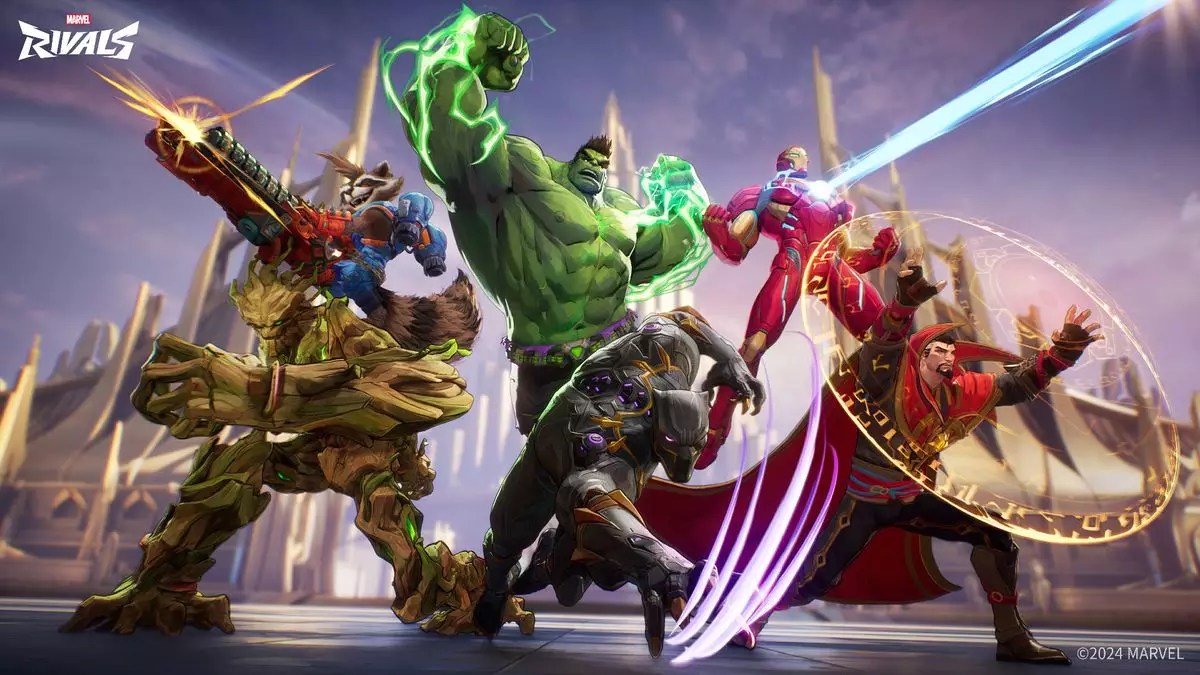The ever-evolving world of multiplayer gaming is often shrouded in myths and misconceptions, especially when it comes to character effectiveness in competitive play. Players of the recently popularized game Marvel Rivals have found themselves battling familiar faces from the Marvel universe, yet the meta seems fraught with unexpected hierarchies. One astute data analyst, known as Aggragating_Job9976 on Reddit, has turned conventional wisdom on its head by leveraging in-depth statistics from the top players in the game. This article explores their findings, providing insights that challenge widely accepted norms regarding character rankings and playability.
Aggragating_Job9976 undertook the Herculean task of parsing through data from the TOP500 players leaderboard, amassing a dataset that would overwhelm most casual players. They reported that the compilation included data not just on the heroes each player predominantly used but also on all heroes with significant playtime. By including heroes with at least three hours of playtime and accommodating cases of lesser playtime, this approach resulted in a robust dataset of nearly 600 rows.
The genius of this method lies in its comprehensiveness. While the raw number of players with private profiles posed a minor setback, the extensive dataset still provides a treasure trove of insight into character performance across the competitive spectrum. This meticulous attention to detail underscores the importance of analyzing a range of factors to produce a meaningful tier list, setting Aggragating_Job9976 apart from more casual assessments.
At the heart of any ranking system lies the metrics that guide the analysis. In this case, Aggragating_Job9976 focused on two critical elements: pick rate and average win rates. While many may assume that higher win rates should automatically vault a character into the top tier, the analyst argues otherwise. By emphasizing a balanced view of win rates and pick rates, they present a more nuanced picture of character potential.
For example, while Hulk may boast a meaningful win rate, his pick rate fails to indicate that players frequently rely on him at the highest levels of play. Conversely, heroes like Doctor Strange achieved an impressive win rate of 64.6% across over 2,900 games, which solidified his S tier status. The striking contrast between less frequently chosen yet high-performing characters and those that dominate pick rates leads to surprising results in the tier list, offering a more accurate representation of character utility in competitive environments.
The tier list crafted by Aggragating_Job9976 revealed some shocking rankings that defy player expectations. While many assumed classic heavyweights like Hulk and Iron Fist would reign supreme, they ranked lower—Hulk appearing as a B tier hero. Longer-term players equipped with critical thinking skills may find solace knowing that their intuition isn’t always the guiding force in competitive gameplay.
S tier favorites such as Doctor Strange, Hela, Psylocke, Mantis, and Luna Snow emerged from the data elite, inciting discussions on what constitutes a “meta” in the game. Interestingly, the analyst points out that popular characters often carry the potential for lower-ranked players to succeed; however, the actual gameplay experience may diverge significantly based on their selectivity among higher-ranked players.
While the narrative tightly revolves around data analytics, it’s essential to also consider the psychological dimensions of character selection in games like Marvel Rivals. Perceptions of certain characters often dominate discussions within the community, shaping expectations regardless of statistical reality. For instance, the notion of Scarlet Witch being relegated to D tier may rattle her fans, but it emphasizes the idea that a character’s popularity does not necessarily equate to optimal performance.
This incongruity suggests that players may benefit from adopting a more data-informed approach to their character choices, considering both metrics and trends rather than relying solely on personal bias or community pressure. Cognitive biases can cloud judgment, leading to selections that align more with surface-level perceptions instead of empirical evidence.
The efforts of Aggragating_Job9976 in dissecting the Marvel Rivals meta reveal a world where intuition must align with data-driven decision-making. In a realm where characters like Doctor Strange and Hela take the spotlight, and others fade into obscurity, such findings push the boundaries of player understanding. Ultimately, the pursuit of improvement in competitive gaming lies in our willingness to challenge our preconceptions and engage critically with data. As the meta continues to evolve, embracing this analytical mindset could be the key to unlocking success in Marvel Rivals.


Leave a Reply